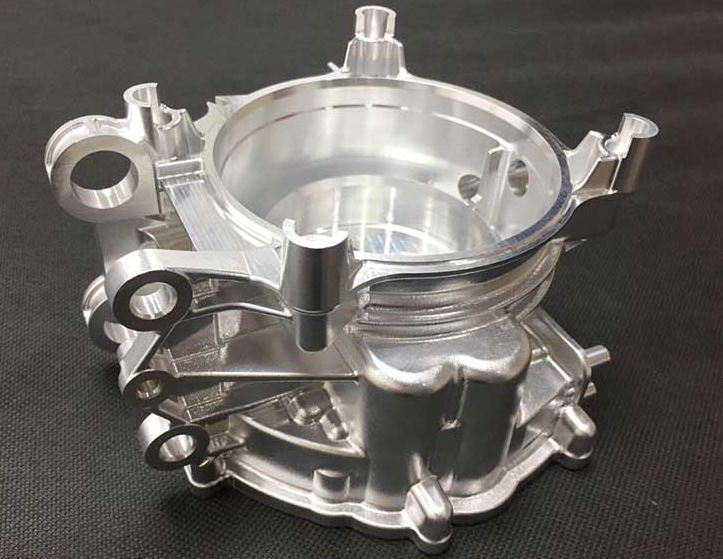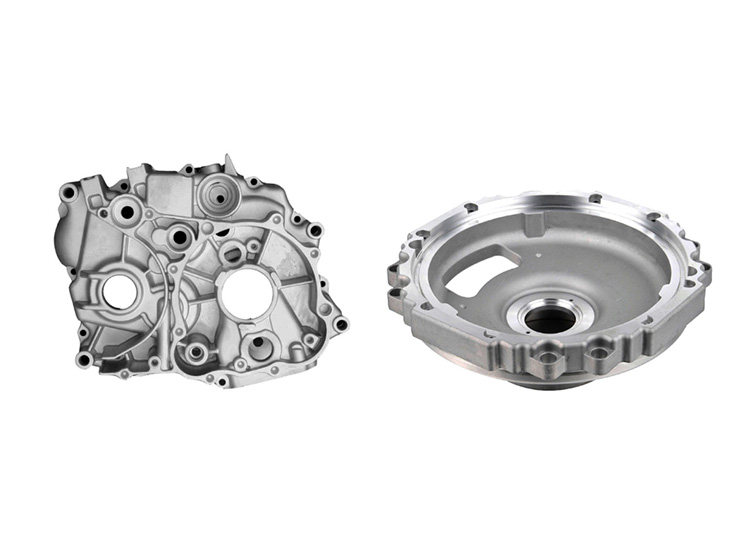About Stahl Specialty Company
All about Stahl Specialty Company
Table of ContentsGetting The Stahl Specialty Company To WorkThe Main Principles Of Stahl Specialty Company Stahl Specialty Company - An OverviewStahl Specialty Company for BeginnersThe 8-Minute Rule for Stahl Specialty CompanyGet This Report about Stahl Specialty Company

If you're developing a metal product, you've likely taken into consideration making use of aluminum as the base product. Pure light weight aluminum has actually limited applications, so it is usually integrated with various other components, such as silicon, magnesium, and manganese to create alloys.
Different elements and quantities generate a broad range of preferable physical and chemical residential or commercial properties. And the Light weight aluminum Organization (AA), based in North America, has created specifications that manage aluminum alloys' composition, properties, and language. There are two kinds of light weight aluminum alloys wrought and cast. Factory employees form these alloy enters different means, which substantially impacts their qualities.
What Does Stahl Specialty Company Mean?
Cast light weight aluminum alloys are made by thawing pure aluminum and integrating it with other steels while in liquid form. The mix is put into a sand, die, or investment mold. After solidification, the metal is eliminated from its mold. At this phase, it is in either its final type or as a billet or ingot for more processing.

The fourth figure, which comes after the decimal factor, defines if the alloy is a casting (xxx. Wrought light weight aluminum alloys also begin by incorporating liquified light weight aluminum with other metals. In comparison to cast alloys, nonetheless, they are formed into their final form with processes such as extrusion, rolling, and bending after the steel has solidified right into billets or ingots.
There are numerous minor differences in between functioned and cast light weight aluminum alloys, such as that cast alloys can have extra substantial amounts of other steels than wrought alloys. The most notable distinction in between these alloys is the manufacture procedure through which they will go to deliver the final product. Besides some surface area therapies, cast alloys will exit their mold in virtually the precise strong type desired, whereas functioned alloys will go through several alterations while in their strong state.
If you believe that a functioned alloy might be the most effective for your project, take a look at a few of our articles that explain more about particular functioned alloys, such as Alloy 6061 and Alloy 6063. On the various other hand, if you think a cast alloy would certainly be much better for you, you can find out more about some actors alloys in our Alloy 380 and Alloy 383 articles (coming soon).
Fascination About Stahl Specialty Company
When picking an aluminum foundry for your production demands, it's important to examine numerous variables. One of one of the most vital aspects to think about is the experience and skills of the foundry. Aluminum Casting. Choosing a factory that has the best expertise of the light weight aluminum casting procedure, and the profile to show for it, assists to have an effective result for your job
Having the experience and industry understanding to engineer your castings for ideal production and quality results will improve the task. Making light weight aluminum castings requires a complex collection of procedures to achieve the right outcomes. When picking a new light weight aluminum foundry to companion with, ensure they have extensive market experience and are knowledgeable regarding all aspects of the light weight aluminum spreading process: style, production, material evaluation, and item testing.
The shop should additionally have a tried and tested performance history of supplying exceptional items that satisfy or exceed consumer assumptions. Quality control ought to additionally go to the top of your checklist when choosing a light weight aluminum foundry. By dealing with a certified foundry who follows the standards for high quality control, you can safeguard the honesty of your item and guarantee it satisfies your specs.
By picking a anchor business who supplies services that meet or exceed your item needs, you can be sure that your task will be finished with the utmost accuracy and performance. Specific light weight aluminum factories concentrate on specific types of making procedures or casting techniques. Different parts call for different manufacturing methods to cast light weight aluminum, such as sand casting or pass away casting.
The Definitive Guide to Stahl Specialty Company
Pass away casting is the name offered to the process of producing complicated metal parts via use molds of the part, likewise referred to as passes away. The process uses non-ferrous steels which do not include iron, such as aluminum, zinc and magnesium, as a result of the desirable buildings of the metals such as reduced weight, higher conductivity, non-magnetic conductivity and resistance to corrosion.
Pass away casting manufacturing is fast, making high production degrees of components very easy. It produces more elements than any kind of other procedure, with a high degree of accuracy and repeatability. To find out even more about die casting and die casting products utilized while doing so, kept reading. There are 3 sub-processes that fall under the classification of die casting: gravity pass away casting (or irreversible mold casting), low-pressure die spreading and high-pressure die casting.
After the pureness of the alloy is evaluated, passes away are produced. To prepare the dies for casting, it is vital that the dies are clean, so that no deposit from previous productions stay.
Stahl Specialty Company for Beginners
The pure steel, additionally referred to as ingot, is contributed to the furnace and maintained at the molten temperature of the steel, which is then transferred to the shot chamber and injected right into the die. The pressure is then kept as the metal strengthens. When the steel solidifies, the cooling procedure starts.
(https://www.kickstarter.com/profile/stahlspecialc/about)
The thicker the wall surface of the component, the longer the cooling time due to the fact that of the amount of indoor steel that additionally needs to cool. After the component is fully cooled down, the die cuts in half open and an ejection device presses the component out. Following the ejection, the die is shut for the following shot cycle.
The flash is the extra material that is cast during the procedure. This must be cut off utilizing a trim device to leave just the main part. Deburring gets rid of the smaller sized pieces, called burrs, after the trimming procedure. The component is polished, or burnished, to provide it a smooth finish.
The Main Principles Of Stahl Specialty Company

Zinc is one of the most previously owned alloys for die casting due to its lower expense of raw materials. Its deterioration resistance likewise allows the parts to be long enduring, and it is one of the much more castable alloys due to its reduced melting point.
As pointed out, this alloy is among one of the most frequently used, yet produces will, sometimes, choose aluminum over zinc due to light weight aluminum's manufacturing benefits. Light weight aluminum is extremely economical and one of the much more functional alloys. Light weight aluminum is used for a number of various products and industries anything from window frames to aerospace materials.